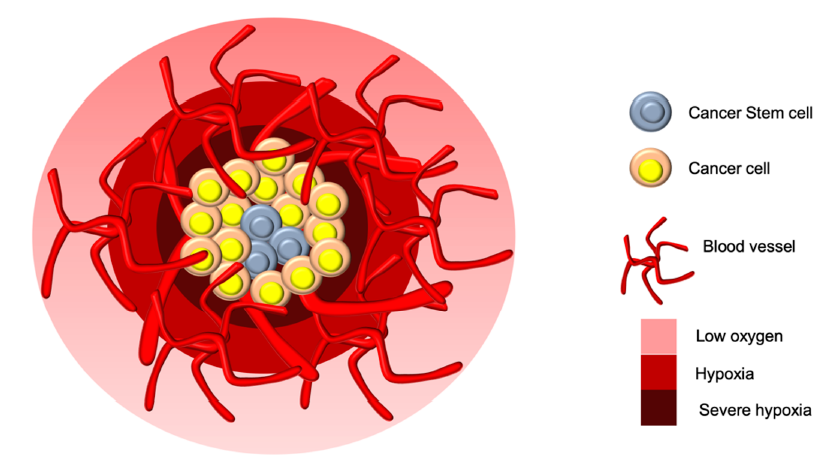Roles of hypoxia in tumor progression and novel strategies for cancer treatment
DOI:
https://doi.org/10.15419/bmrat.v9i10.774Keywords:
HIF inhibitors, hypoxia, cancer cell, hypoxia-inducible factors, tumor progressionAbstract
The metabolic process of normal cells in general and of cancer cells in particular requires an important molecule—oxygen. In tumors, the oxygen level tends to decrease gradually from the outer layers to the central core, leading to a condition termed ``hypoxia.'' Changes in the oxygen level modify the signaling pathways and metabolic activities of cancer cells. Basically, tumor development is divided into three stages: initiation, promotion, and progression. Among them, the effects of hypoxia are most evident during tumor progression. In this review, we summarize previous findings on the mechanisms underlying hypoxia-induced alterations in the expression of genes and proteins associated with hypoxia-inducible factors (HIFs), which play a central role in the development of malignancy in many types of cancer. We also present the latest evidence on HIF-targeted cancer treatment that yields positive outcomes in vitro and in vivo.

Published
Issue
Section
License
Copyright The Author(s) 2017. This article is published with open access by BioMedPress. This article is distributed under the terms of the Creative Commons Attribution License (CC-BY 4.0) which permits any use, distribution, and reproduction in any medium, provided the original author(s) and the source are credited.
